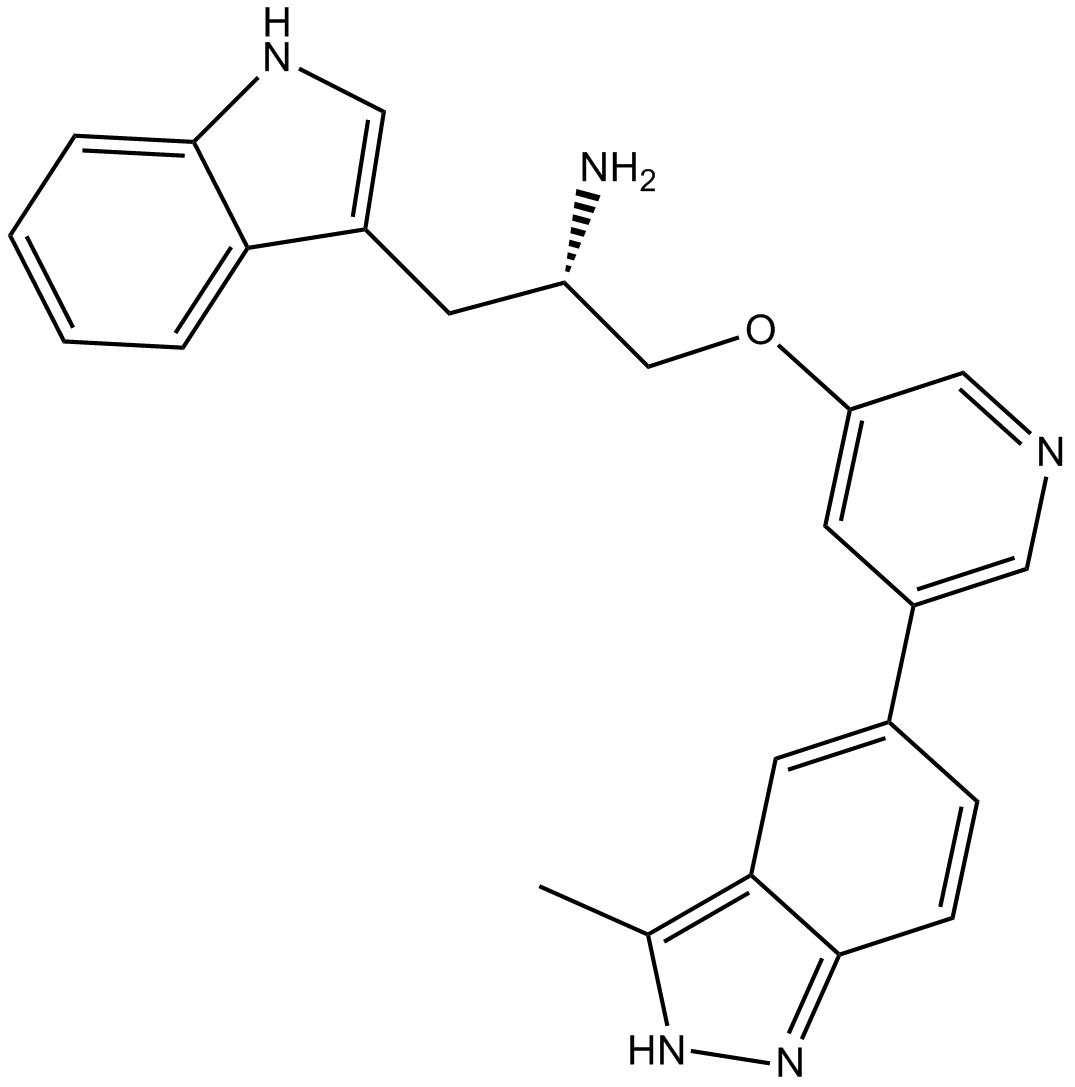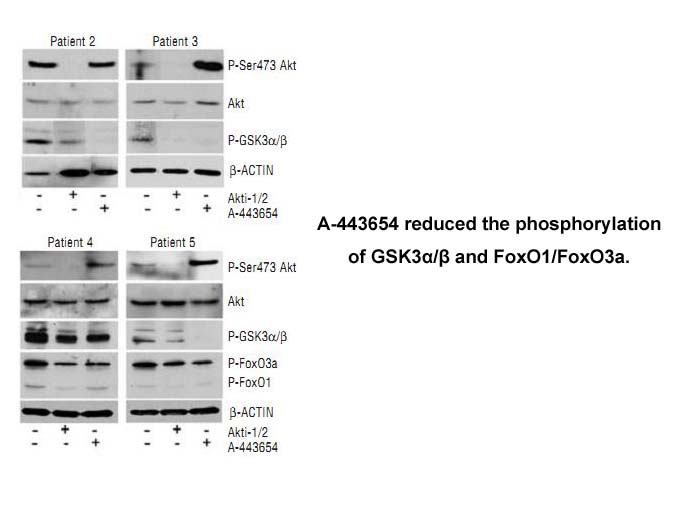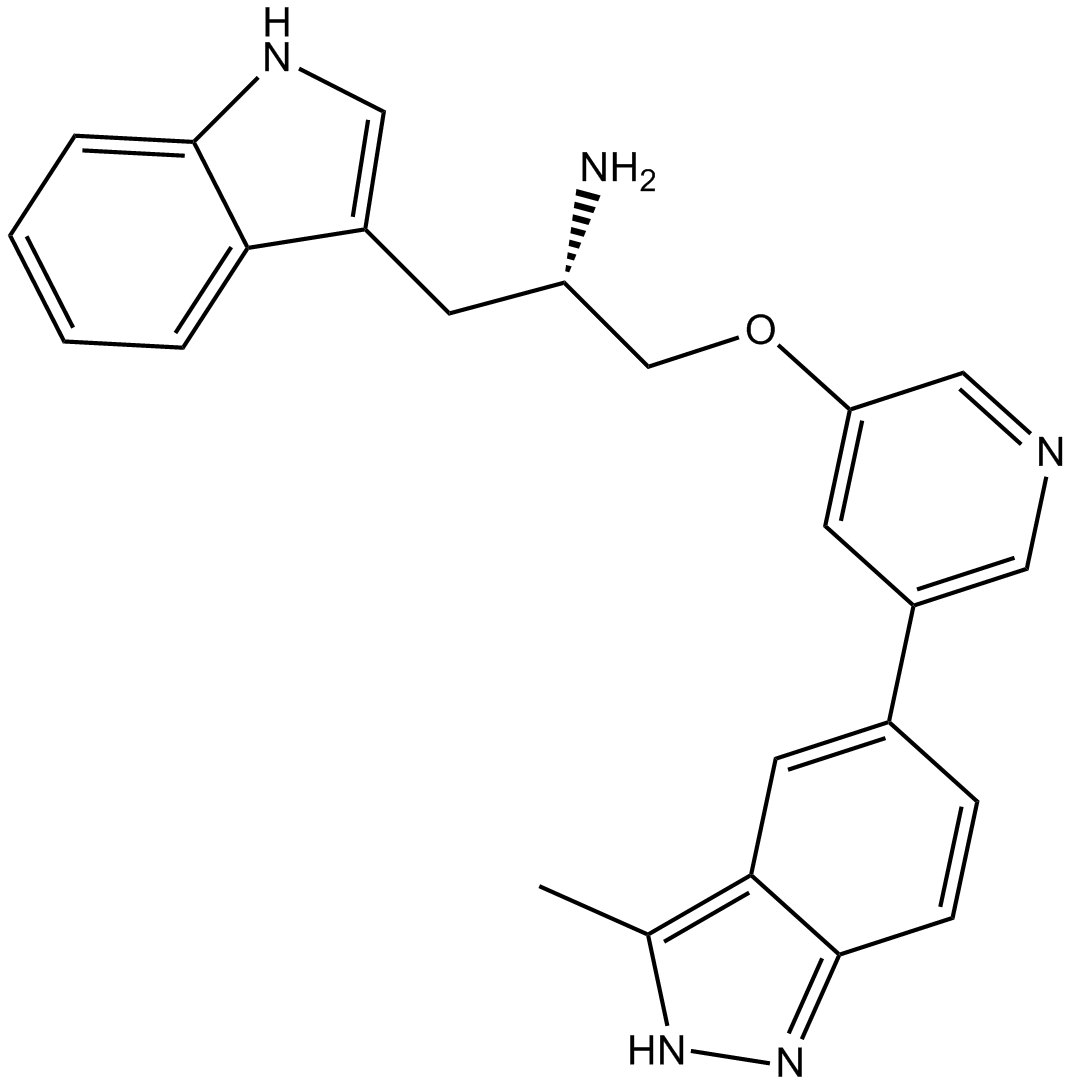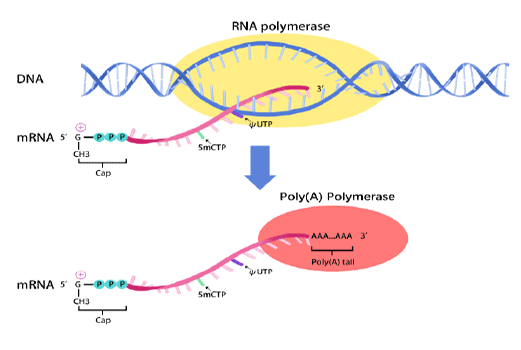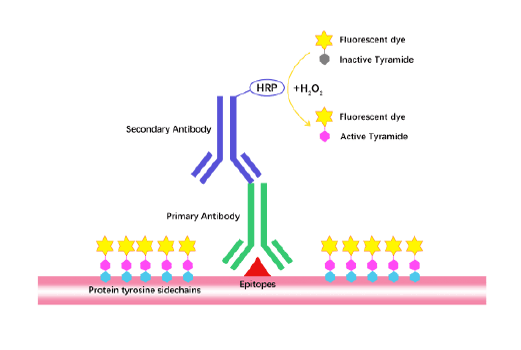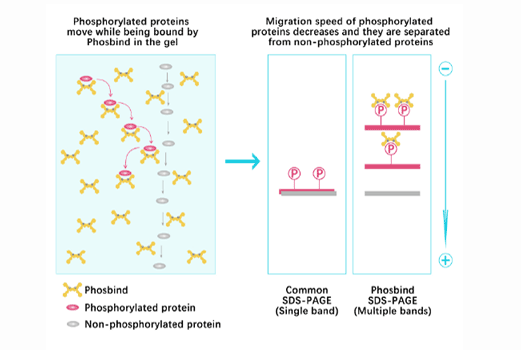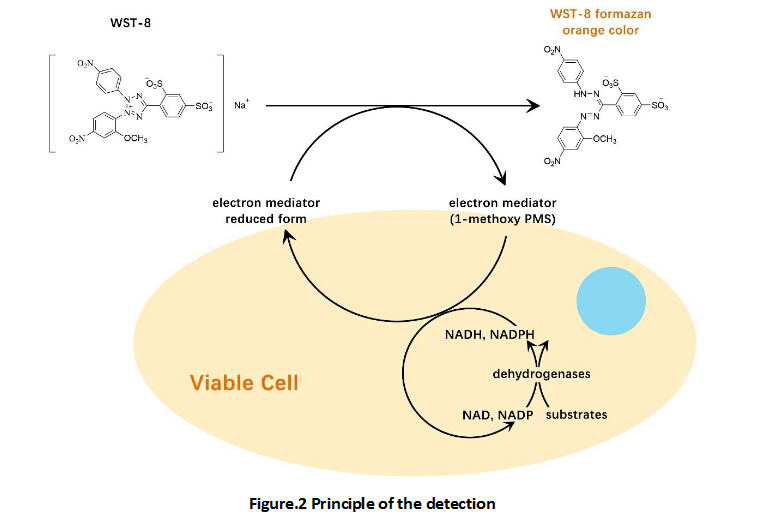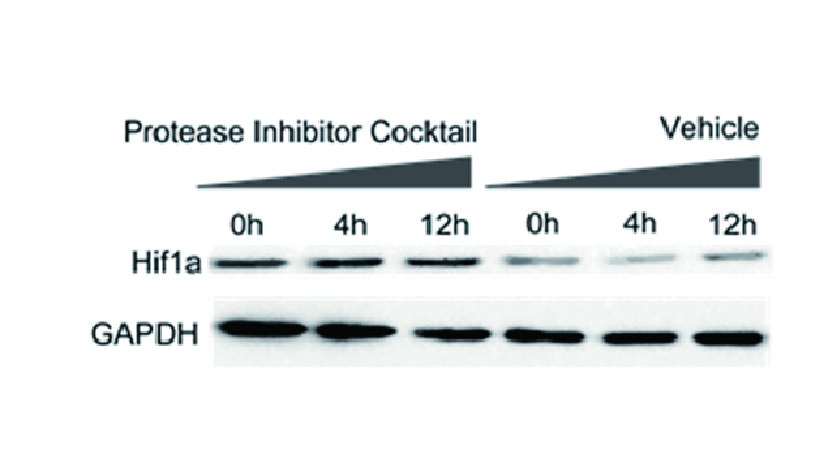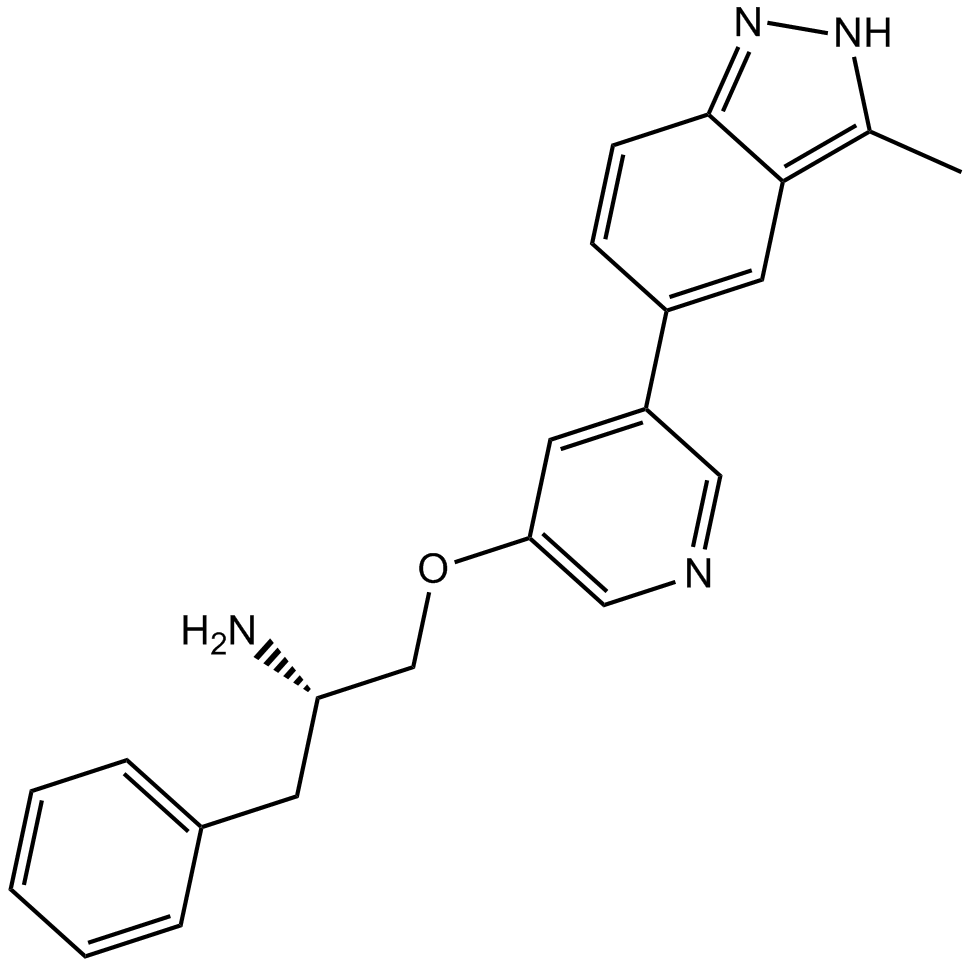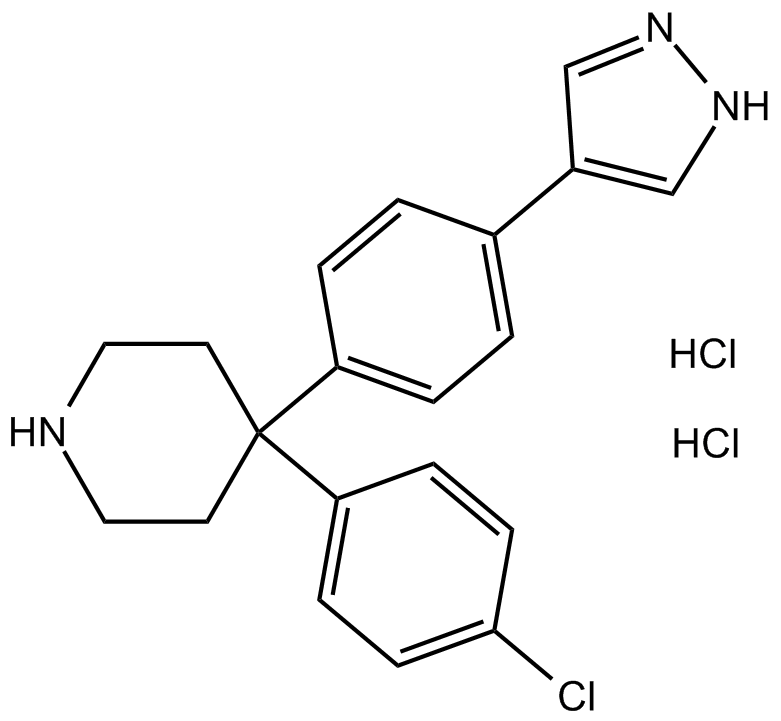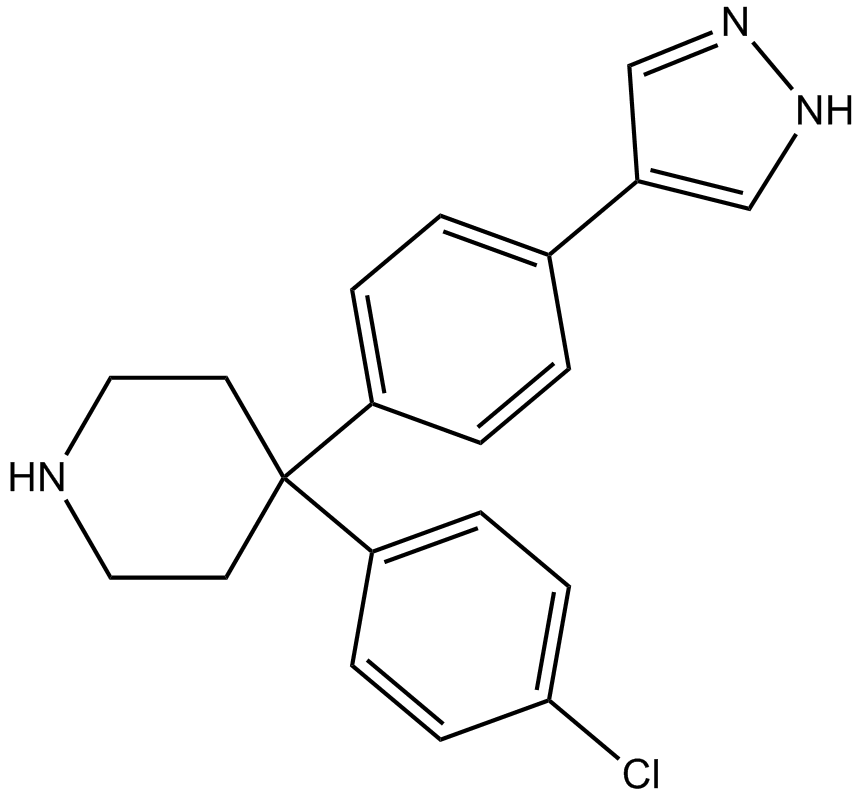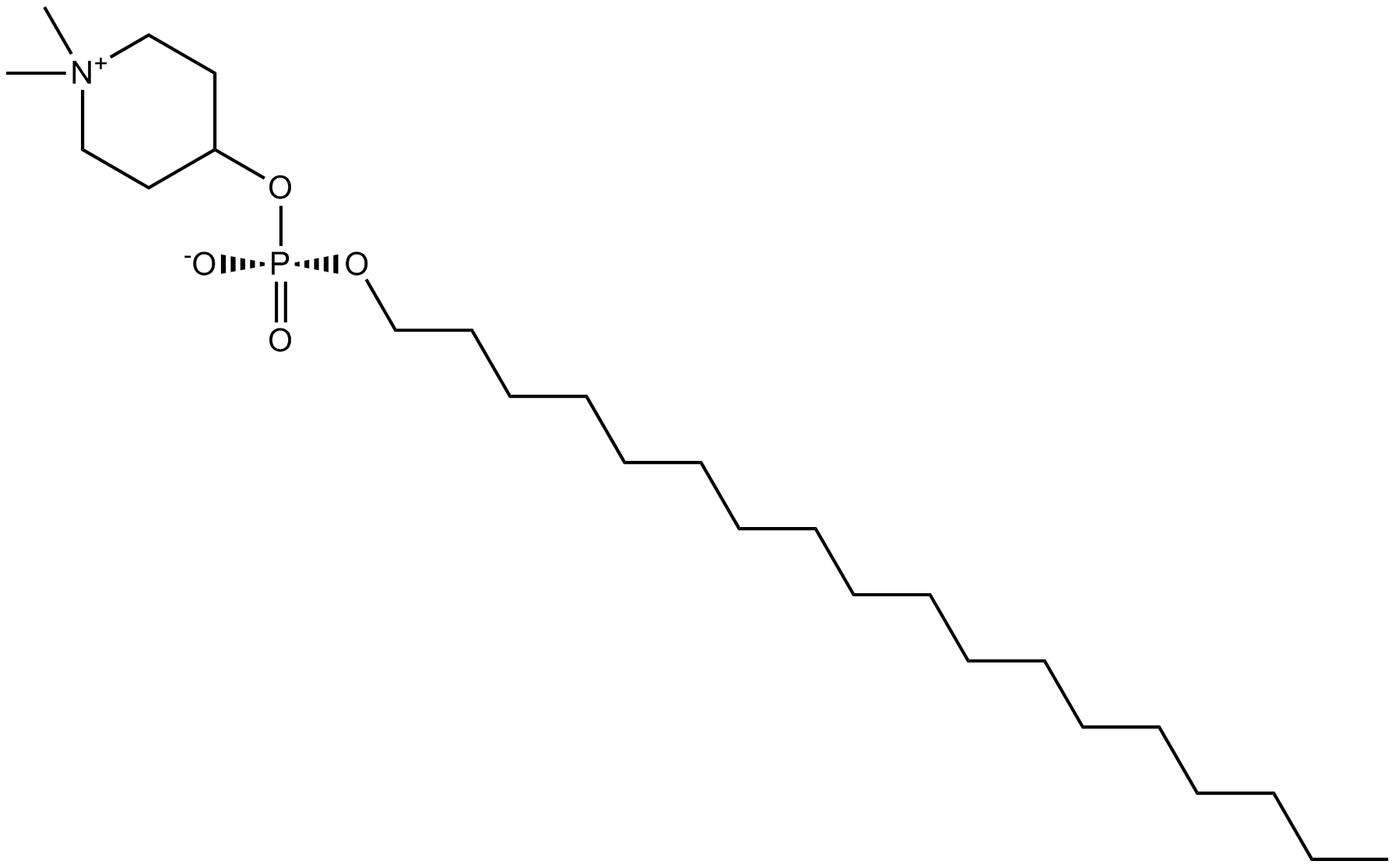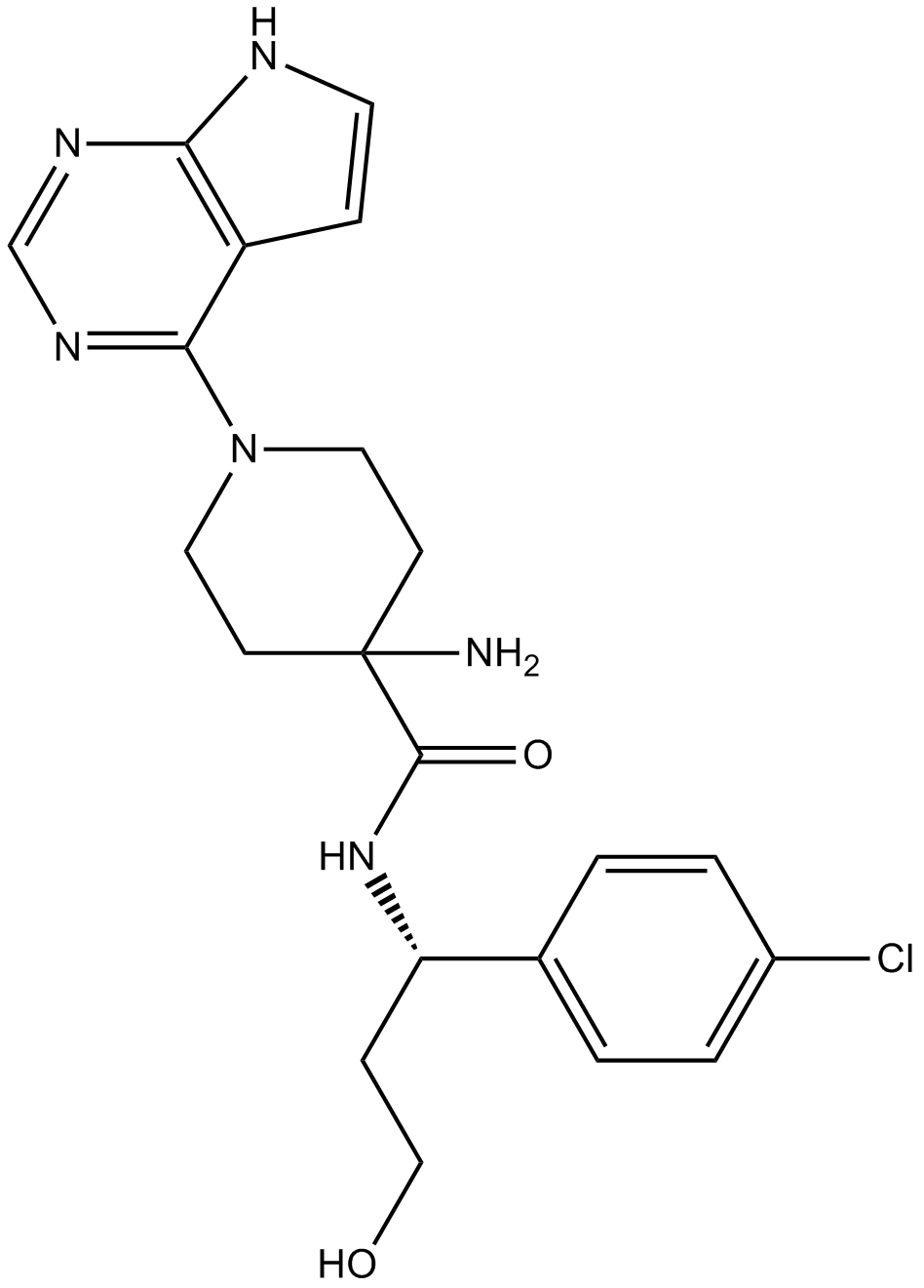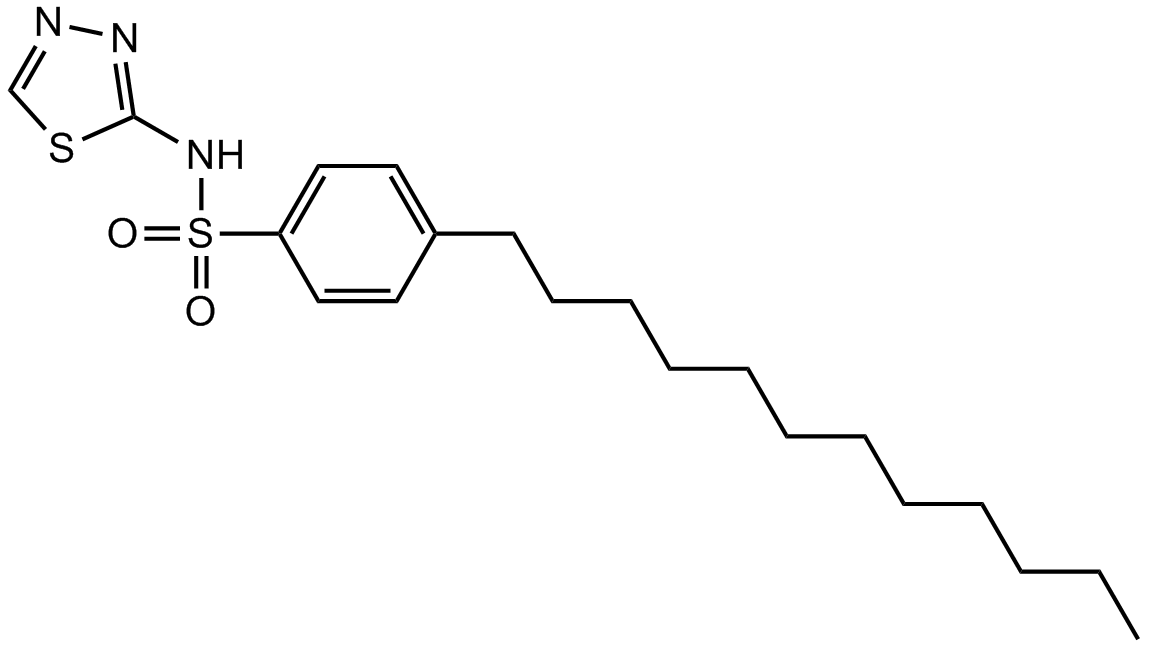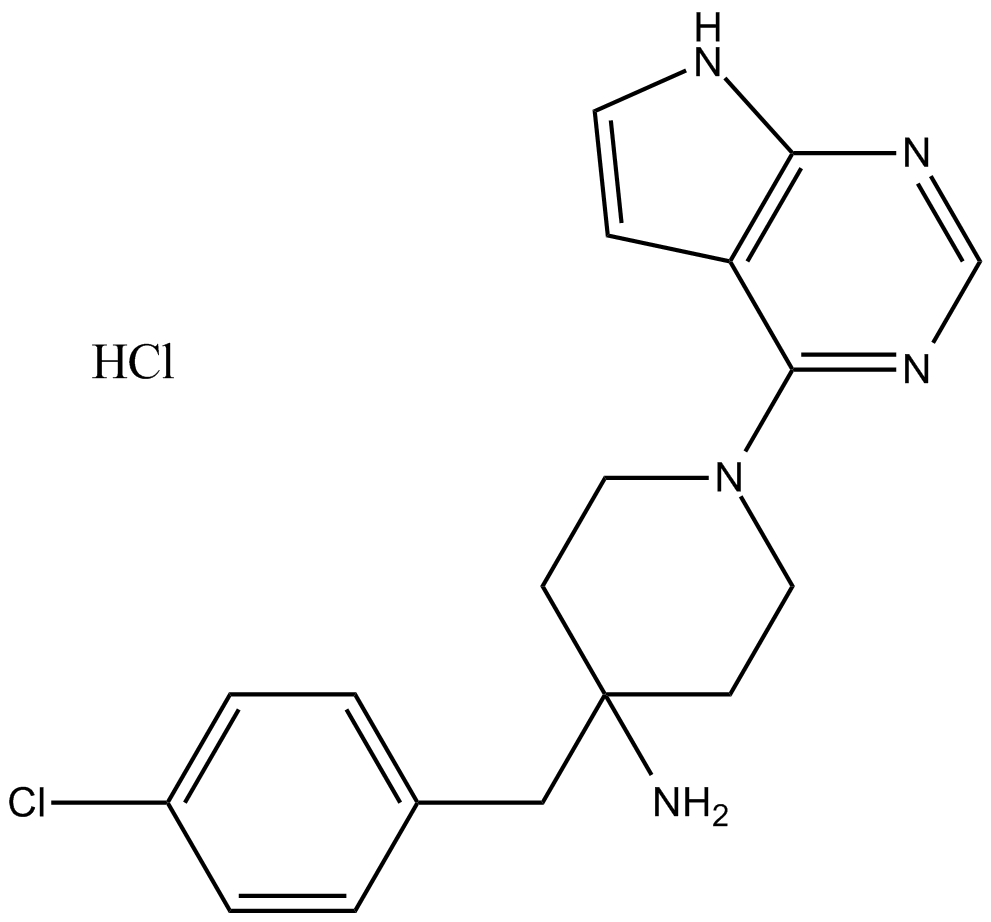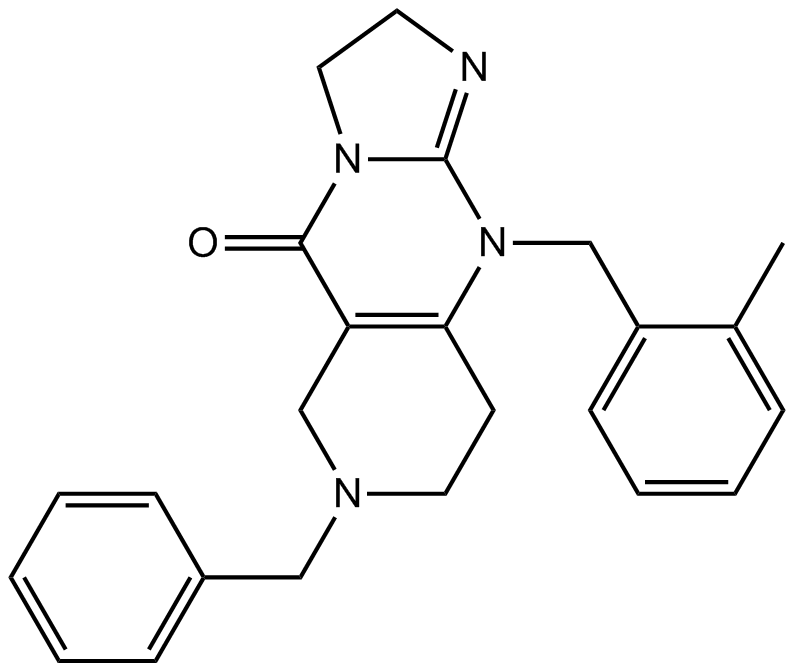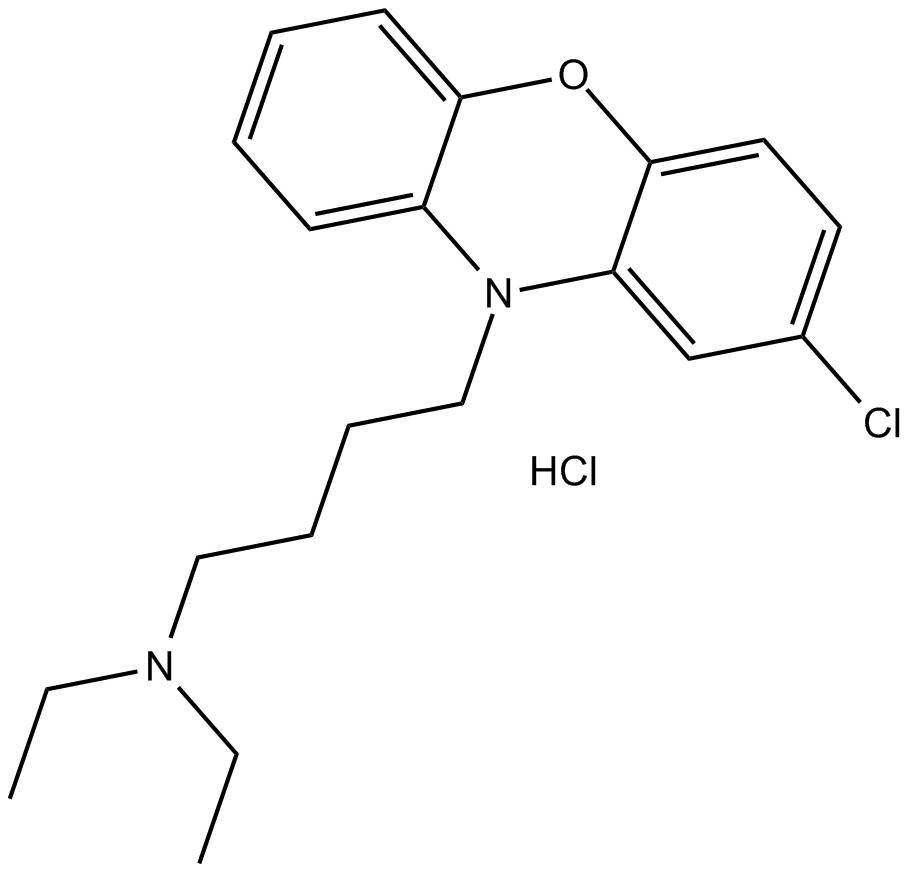A-443654 is a potent and selective inhibitor of Akt with Ki value of 160 pM [1].
The Akt kinases play important roles in cellular signal transduction and take participate in the regulation of cell transformation and tumor progression. The activities of them are usually elevated in human malignancies. A-443654 is a pan inhibitor of Akt1, 2 and 3. It binds to the ATP-binding site of Akt and inhibits the kinase activity reversibly. A-443654 shows selectivity against Akt. The inhibition ability of it for Akt is much higher than that for other kinases. It is found that A-443654 can suppress the phosphorylation of the downstream proteins of Akt while increased the Ser473 and Thr308 phosphorylation of Akt [1].
In murine FL5.12 cells stably transfected with human Akt1, 2 or 3, A-443654 inhibited the phosphorylation of GSK3 dose-dependently. A-443654 at a concentration of 0.6 μM inhibited Akt and induced G2/M accumulation in H1299 cells. In MiaPaCa-2 cells, treatment of A-443654 for 48 h resulted in a suppression of tumor proliferation with EC50 value of 100 nM. In chronic lymphocytic leukemia cells, A-443654 also inhibited the activity of Akt and induced apoptosis with EC50 value of 0.63 μM .Besides that, A-443654 was found to cause decreased phosphorylation of GSK3, FOXO3, TSC2 and mTOR in MiaPaCa-2 cells. It is also reported that A-443654 was effective in blocking the phosphorylation of 4EBP-1 and S6 protein in both T47D and LNCaP cells [1, 2, 3 and 4].
A-443654 is not oral available. In mice model with human MiaPaCa-2 pancreatic cell xenograft, the administration of A-443654 at a dose of 7.5mg/kg/d significantly inhibited tumor growth. A-443654 also inhibited tumor growth in 3T3 murine fibroblast model expressing active Akt. When using the combination of A-443654 and rapamycin in mice model with MiaPaCa-2 pancreatic cancer xenograft, the administration showed more efficacy than each monotherapy [1].
References:
1.Luo Y, Shoemaker A R, Liu X, et al. Potent and selective inhibitors of Akt kinases slow the progress of tumors in vivo. Molecular cancer therapeutics, 2005, 4(6): 977-986.
2.Liu X, Shi Y, Woods K W, et al. Akt inhibitor a-443654 interferes with mitotic progression by regulating aurora a kinase expression. Neoplasia, 2008, 10(8): 828-837.
3.Merce de Frias M, Iglesias-Serret D, Cosialls A M, et al. Akt inhibitors induce apoptosis in chronic lymphocytic leukemia cells. haematologica, 2009, 94(12): 1698-1707.
4.Cherrin C, Haskell K, Howell B, et al. An allosteric Akt inhibitor effectively blocks Akt signaling and tumor growth with only transient effects on glucose and insulin levels in vivo. Cancer biology & therapy, 2010, 9(7): 493-503.
